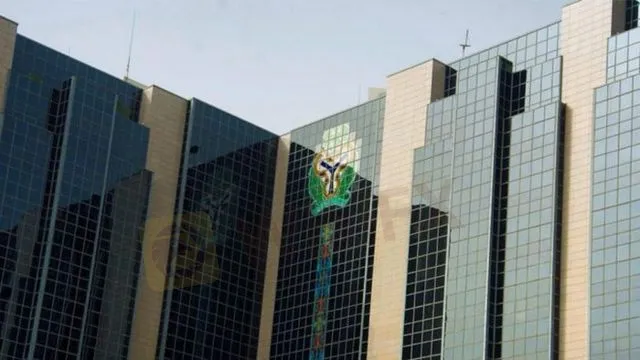简体中文
繁體中文
English
Pусский
日本語
ภาษาไทย
Tiếng Việt
Bahasa Indonesia
Español
हिन्दी
Filippiiniläinen
Français
Deutsch
Português
Türkçe
한국어
العربية
How commodities ecosystem can drive CBN’s FX policy
Abstract:Bankers and other operators in the Nigerian financial market have identified deployment of commodities ecosystem as a means, which the Central Bank of Nigeria (CBN) can achieve the plan to generate up to $200 billion yearly from non-oil exports in the next three to five years through its RT 200 FX policy.

Bankers and other operators in the Nigerian financial market have identified deployment of commodities ecosystem as a means, which the Central Bank of Nigeria (CBN) can achieve the plan to generate up to $200 billion yearly from non-oil exports in the next three to five years through its RT 200 FX policy.
The stakeholders that gathered at a breakfast meeting, hosted by Lagos Commodities and Futures Exchange (LCFE) at the weekend, agreed that effective utilisation of Nigerias commodities ecosystem presents ample opportunity for the apex bank to generate forex through non-oil exports.
In his presentation, the Divisional Head, Agribusiness, Natural Resources and Project Development Heritage Bank, Olugbenga Awe, explained that the Nigerian economy had been well-diversified, going by statistics except for the sources of forex.
Awe, who spoke on ‘The opportunities for financial Institutions in the CBN RT 200 FX’ programme, stated that a commodity exchange was a risk management platform.
According to him, the biggest challenge to the exportation of non-oil products in Nigeria is the ability to meet global standards and demand.
He explained that the Nigerian non-oil products could boost forex earnings if they meet global standards.
This is where commodities exchanges come in. Any product whose electronic receipt is traded on a commodities exchange must be of global standard.
“Banks are willing to support exporters provided they meet certain criteria, including a history of performance, export volume and frequency, payment methods, products sourcing strategy, risk mitigants and seasonality among others.”
Corroborating him, the Managing Director, Agvest Nigeria, Bode Abikoye, noted that commodities prices offer protection from the effects of inflation.
Investing some of your portfolios in commodities is recommended by many experts as it is seen as a diversifier asset class.
Moreover, some commodities tend to be a good hedge against inflation, such as precious metals and energy products.
Investors break down commodities into two categories: hard and soft. Hard commodities require mining or drilling, such as metals like gold, copper, and aluminum, and energy products like crude oil, natural gas, and unleaded gasoline.
Soft commodities refer to things that are grown or ranched, such as corn, wheat, soybeans, and cattle. Commodities tend to bear a low to negative correlation to traditional asset classes like stocks and bonds.
“Supply-and-demand dynamics are the main reason commodity prices change. When there is a big harvest of a certain crop, its price usually goes down, while drought conditions can make prices rise from fears that future supplies will be smaller than expected”, Abikoye said.
The Chief Executive Officer Lotus Capital, Hajara Adeola, who spoke on ‘The Potentials of Non-Interest Financial Instruments to Finance Commodities Ecosystem’, explained that non-interest financial instruments were based on managing businesses on moral principles, stating that they offer many benefits to investors.
In his welcome remark, the Managing Director, LCFE, Akin Akeredolu-Ale explained that a commodities exchange would always come in by catalysing enabling environment, alignment of relevant stakeholders, transparent trading platform, certification and standardisation, data and price discovery, enabling environment for price discovery and regulatory framework.
Disclaimer:
The views in this article only represent the author's personal views, and do not constitute investment advice on this platform. This platform does not guarantee the accuracy, completeness and timeliness of the information in the article, and will not be liable for any loss caused by the use of or reliance on the information in the article.
Read more

The Impact of Interest Rate Decisions on the Forex Market
Interest rate changes determine currency attractiveness, influencing capital flows and exchange rate trends. Understanding this mechanism helps investors navigate the forex market effectively.

How a Housewife Lost RM288,235 in a Facebook Investment Scam
A 47-year-old housewife in Malaysia recently fell victim to an online investment scam, losing a substantial sum of RM288,235 after engaging with a fraudulent scheme advertised on Facebook.

Interactive Brokers Launches Forecast Contracts in Canada for Market Predictions
Interactive Brokers introduces Forecast Contracts in Canada, enabling investors to trade on economic, political, and climate outcomes. Manage risk with ease.

Bank Negara Malaysia Flags 12 New Companies for Unauthorised Activity
Bank Negara Malaysia (BNM) has updated its Financial Consumer Alert List (FCA List) by adding 12 more entities, reinforcing its efforts to warn the public against unregulated financial schemes. Check if your broker made the list!
WikiFX Broker
Latest News
Interactive Brokers Launches Forecast Contracts in Canada for Market Predictions
Authorities Alert: MAS Impersonation Scam Hits Singapore
INFINOX Partners with Acelerador Racing for Porsche Cup Brazil 2025
Billboard Warns of Crypto Scams Using Its Name – Stay Alert!
The Impact of Interest Rate Decisions on the Forex Market
STARTRADER Spreads Kindness Through Ramadan Campaign
How a Housewife Lost RM288,235 in a Facebook Investment Scam
Rising WhatsApp Scams Highlight Need for Stronger User Protections
A Trader’s Worst Mistake: Overlooking Broker Reviews Could Cost You Everything
The Daily Habits of a Profitable Trader
Currency Calculator







